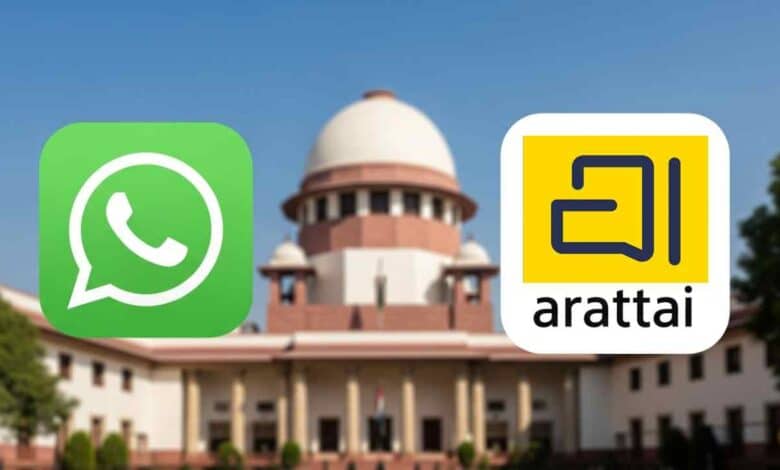”Is Using WhatsApp a Fundamental Right?” Supreme Court Suggests Using Arattai App!

Arattai App: When a petitioner approached the Supreme Court after his WhatsApp account was blocked, the apex court refused to entertain the plea and suggested using other messaging apps instead. Justice Sandeep Mehta specifically mentioned the indigenous app ‘Arattai’. This incident has sparked a new conversation about the use of homegrown technology in digital India and the accountability of social media platforms.
The Case Background
The petitioner, who works at a poly-diagnostic center, had been using WhatsApp for professional communication with clients for about 10-12 years. His account was blocked without any specific reason, causing a major disruption to his professional correspondence. Seeking a solution, he filed a writ petition in the Supreme Court through Senior Advocate Mahalaxmi Pavani.
The Supreme Court’s Observation
During the hearing, the bench of Justices Vikram Nath and Sandeep Mehta questioned the validity of the petitioner’s plea. The bench stated, “What is your fundamental right to have access to WhatsApp?” Justice Mehta added, “There are other communication applications, you can use them. Recently, there’s this indigenous app called Arattai…use that. Make In India!”
The court also questioned the maintainability of such a petition under Article 32 of the Constitution and advised the petitioner to file a civil suit or approach the High Court.
What is the ‘Arattai’ App?
‘Arattai’ is an Indian instant messaging app developed by the Chennai-based company Zoho Corporation. The word ‘Arattai’ means ‘chat’ or ‘conversation’ in Tamil. The app prioritizes user privacy and is completely ad-free. User data is hosted in India, which is a significant aspect of digital security. ‘Arattai’ offers features like messaging, voice and video calls, and online meetings.
Significance of this Ruling
The Supreme Court’s observation is significant in several ways:
- Platform Accountability: It raises a crucial question about whether social media platforms can block user accounts without providing a reason.
- Promotion of Local Tech: The court’s comment supporting the ‘Make in India’ initiative will help promote indigenous technology.
- Digital Rights: This case has fueled the debate on whether using digital platforms falls under a user’s fundamental rights.
This incident demonstrates the need for a balance between user rights and the power of platforms in the digital world. It is hoped that clearer guidelines will be established in the future.

